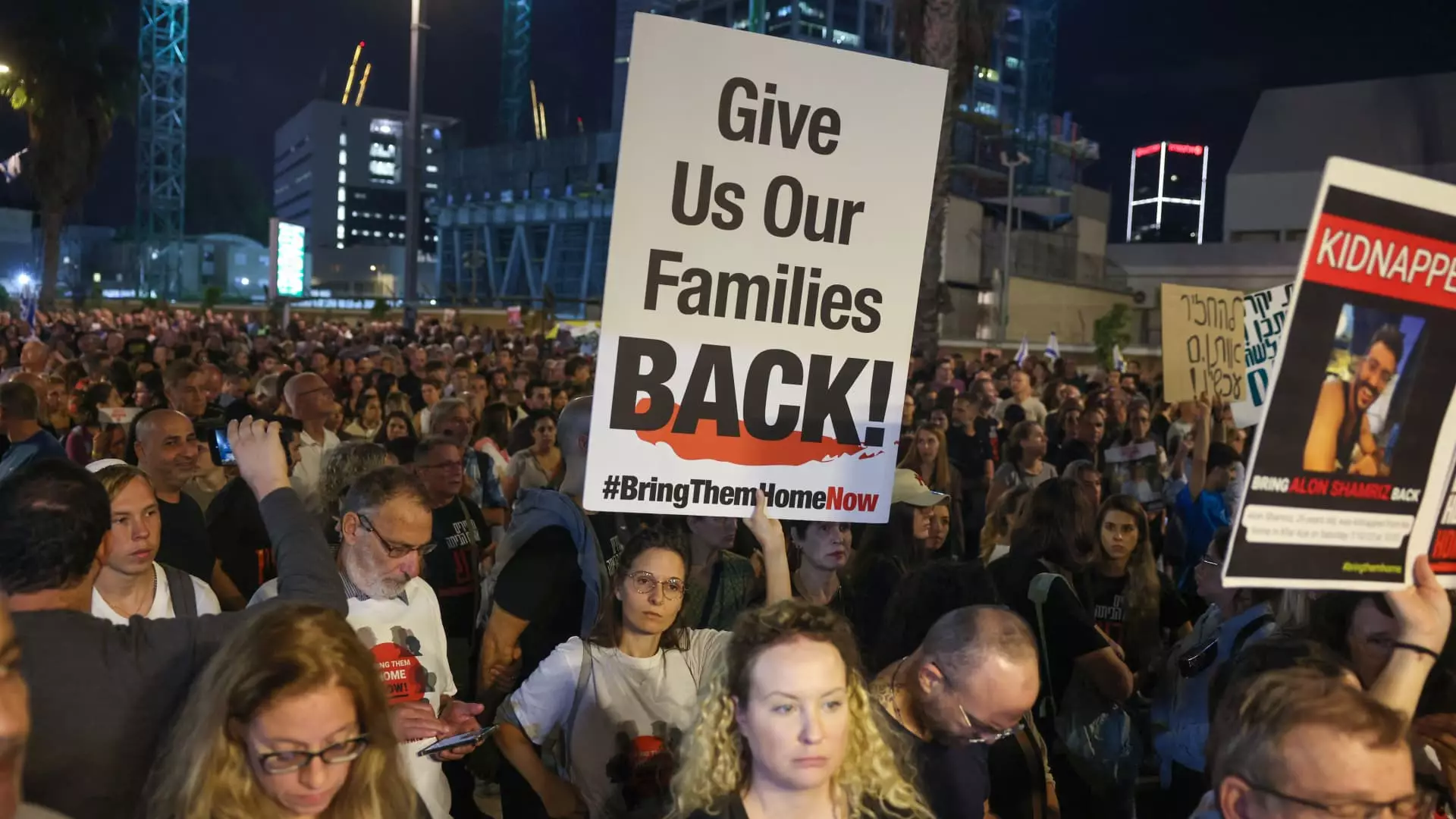In a significant diplomatic breakthrough, Israel and Hamas have agreed to a humanitarian pause, marking a temporary cease-fire aimed at facilitating the release of hostages and increasing the delivery of much-needed humanitarian aid in the Gaza Strip. The agreement, mediated by the U.S., Qatar, and Egypt, comes after weeks of negotiations and represents a glimmer of hope amidst the ongoing conflict in the region.
The humanitarian pause, which is set to last for four days but has the potential for extension, will allow for the liberation of 50 civilian hostages currently held in the Gaza Strip. In exchange, a number of Palestinian women and children detained in Israeli prisons will be released. Furthermore, the agreement will enable the entry of humanitarian convoys and relief aid, including fuel designated for essential needs in the region. The ministry of foreign affairs in Qatar has announced that the start of the pause will be declared within the next 24 hours.
The implementation of this temporary cease-fire marks a significant shift in the dynamics of the Israeli-Hamas conflict. The involvement of Qatar, the U.S., and Egypt in mediating between the two parties demonstrates a collective effort to establish peace and alleviate the suffering of civilians caught in the crossfire. The agreement not only brings hope for the release of current hostages but also lays the groundwork for potential future releases, offering a glimmer of optimism for those affected by the conflict.
One of the key aspects emphasized in the agreement is the allowance for an increased flow of humanitarian aid into Gaza. Civilians in the region have been living in dire circumstances, facing severe shortages of food, water, fuel, and electricity. The four-day pause in fighting will provide an opportunity for aid organizations to deliver much-needed supplies and alleviate the suffering of the people. With an average of 42 aid trucks per day being sent into Gaza since October 21, the agreement aims to bolster these efforts and bring some relief to those in need.
News of the Israeli-Hamas agreement has been met with widespread support and appreciation from the international community. U.S. President Joe Biden and Secretary of State Antony Blinken welcomed the breakthrough, acknowledging the importance of the temporary cease-fire in facilitating humanitarian aid and securing the release of hostages. The involvement of key regional players, such as Qatar and Egypt, further reinforces the significance of this agreement and the hope it brings for a more lasting peace in the region.
While the humanitarian pause and the subsequent release of hostages represent a crucial step forward, it is important to note that the conflict is far from resolved. Israeli Prime Minister Benjamin Netanyahu emphasized that the war would not end until all hostages were released and Hamas eliminated. The true success of this agreement lies in its potential to pave the way for further negotiations and eventual long-term peace in the region.
The Israeli-Hamas agreement for a humanitarian pause marks a significant breakthrough in the ongoing conflict. The release of civilian hostages, the increase in humanitarian aid, and the involvement of key mediators offer a glimmer of hope for those affected by the violence in the Gaza Strip. While challenges remain, this temporary cease-fire sets a precedent for future negotiations and provides an opportunity for much-needed relief for the people of the region. It is a crucial step toward building a more peaceful and secure future for all involved parties.


Leave a Reply